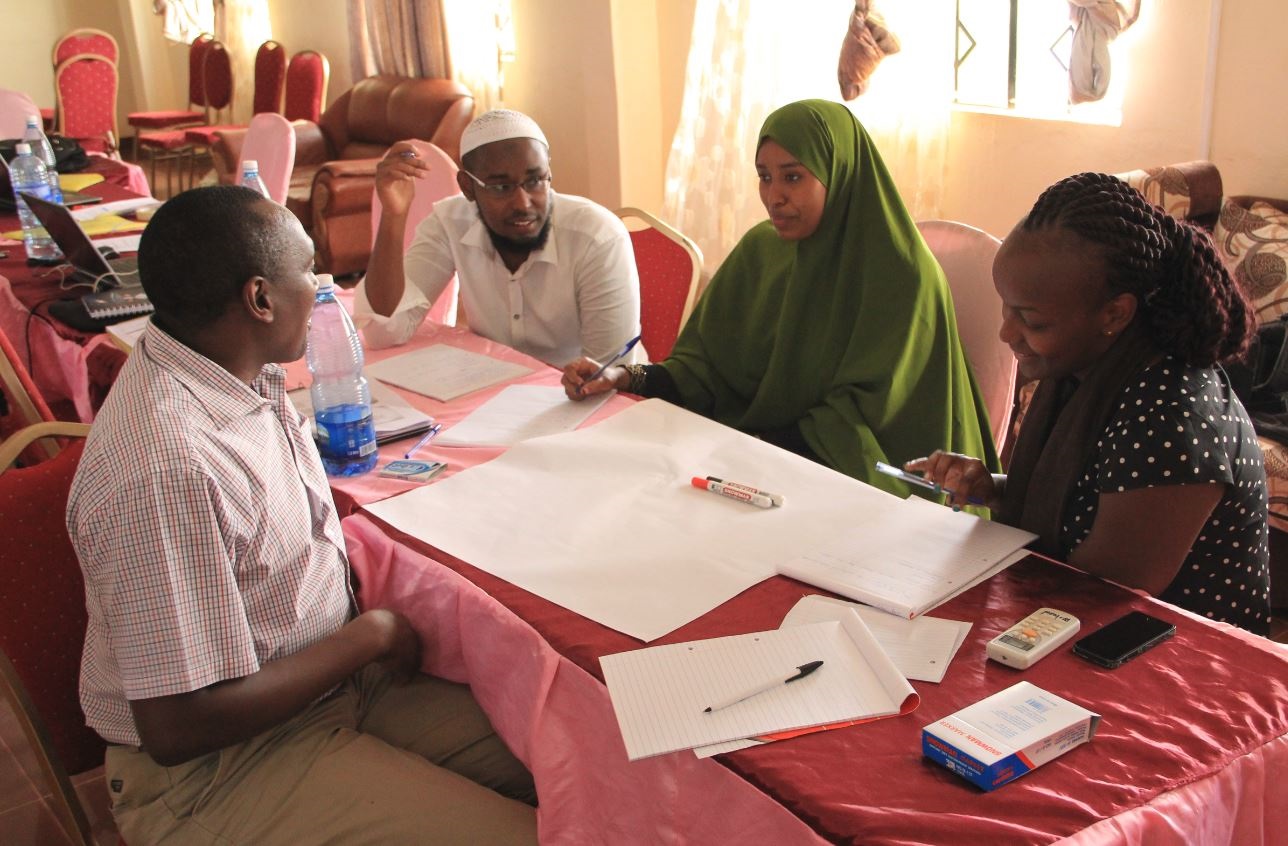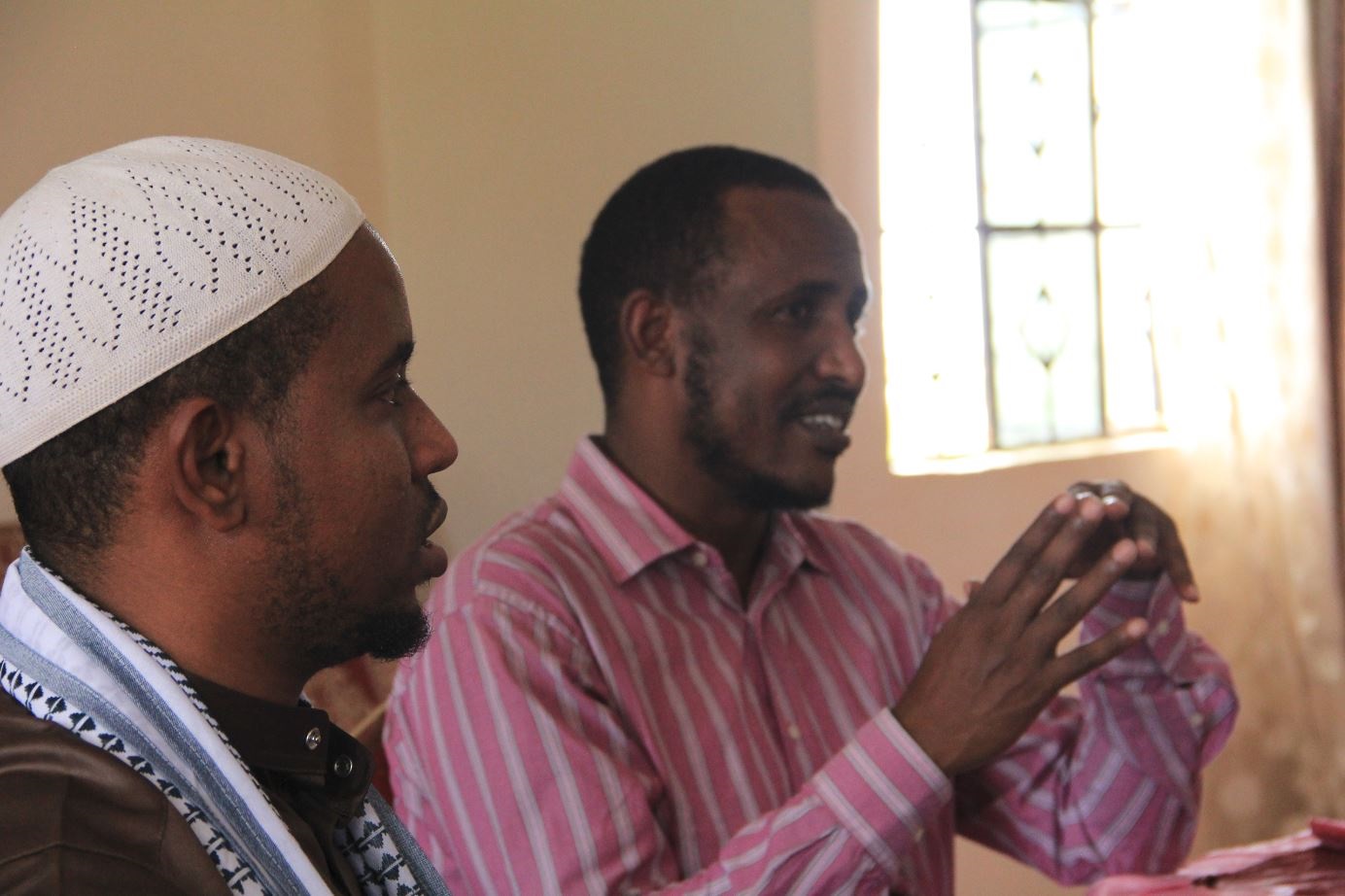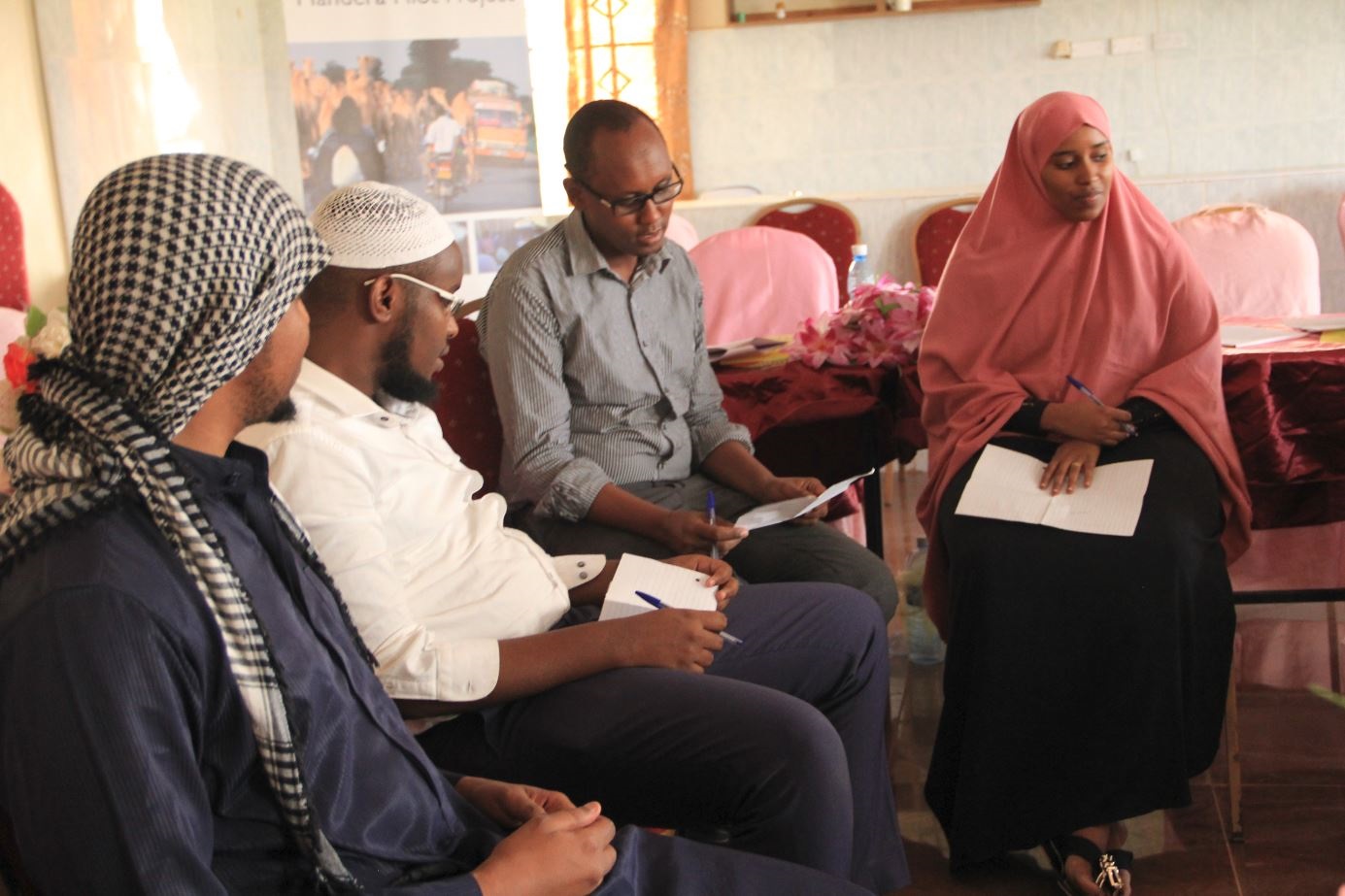Kenya: Raising Local Voices for Peace in Mandera

Hassan Ismail likes to joke that the trajectory of his life has been defined by conflict. Born and raised in Kenya’s Mandera County, Hassan has experienced violent clan conflict several times in his life. On two occasions when he was a child, his family was ransacked in violent episodes of conflict, losing their entire herd of camels and with it their livelihood. The second attack that took place when Hassan was a teenager proved the most devastating. Hassan’s father, known in his prime as a hardworking family man, was unable to set the family back on its feet due to the frailties of age. Life became a difficult struggle. But through sheer determination, Hassan was able to struggle his way through school and to embark on a life of service to the community. He has worked as a school teacher, a humanitarian aid worker and now coordinates Interpeace’s new peacebuilding programme in Mandera.

Hassan (right) makes a point during the induction of the Mandera programme team. Photo credit: Interpeace
Hassan is quick to clarify that his experience is not unique. His story rings true for many people from Mandera County, which has had a long history of clan conflict and marginalization. While many of the conflicts were traditionally rooted in territorial disputes, they have in recent decades been compounded by competition over political and economic opportunities. A new national constitution adopted in 2010 ushered in Kenya’s Second Republic, and with it a new era of devolved governance. The advent of devolution was welcomed by many residents of Mandera, who were optimistic that their historical marginalization might finally come to an end. But while devolution brought national resources, social services and governance closer to the local population, also provided a new frontier for contention between the County’s various clans for political and economic power.
It is in the midst of these challenges that Interpeace’s Mandera peacebuilding programme seeks to provide a glimmer of hope. Implemented in partnership with Kenya’s National Cohesion and Integration Commission (NCIC), the programme’s goal is to integrate grassroots aspirations for peace, building on local capacities and providing a strategic link with decision and policy makers at the national level. The programme marks a departure from past peace initiatives, which were largely top-down interventions mobilized to contain situations that had already escalated into violence.
“Many peace efforts were unstainable because local voices were missing from the equation,” Hassan explains.
Taking a bottom-up approach, the Mandera programme seeks to progressively build peace by placing local populations in the driving seat, particularly in the identification of both the impediments to peace and possible solutions. The NCIC completes the picture by providing the crucial channel through which the government will better understand the underlying causes of these clan conflicts.
One of the ways in which local voices will be captured is through the Mobile Audio Visual Unit (MAVU). Interpeace has decades of experience using audio-visual means, mainly mobile cinema, to build trust and understanding among communities divided by either conflict or geographical distance. The MAVU approach involves facilitated dialogues catalyzed through documentary films, which are additionally used to bring the voices of local populations to the attention of policy and decision makers.
“The opportunity for the government to perceive the conflicts from the perspective of grassroots people will make a great difference,” Hassan says. “It will pave the way for the development of long-term structures for peace, built and endorsed by people at the grassroots level.”
Read more about Interpeace’s work in Eastern and Central Africa.

